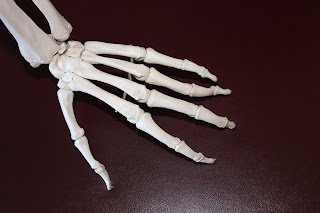Leucine is important in preventing muscle loss
Muscle mass decreases with age, a phenomenon known as sarcopenia. After age 30, most people experience a loss of muscle mass of about 3 to 8% in 10 years, and the rate of decline increases even more after age 60. However, this is not fixed and lifestyle factors such as diet and exercise can affect muscle loss and slow progression significantly.
Professor Luc van Loon, professor of exercise physiology and nutrition at Maastricht University in the Netherlands, has Massage studied muscle loss for many years, uncovering the importance of diet for muscle health. According to Professor Van Lun, every day 1-2% of the muscles are broken down and rebuilt. In other words, your muscles rebuild every 2-3 months.
The amino acids in proteins are particularly important in this process, and they play a role in the growth of new muscles while also serving as a raw material or'building block' for muscle. In particular, leucine has been found to be an amino acid with greater anabolic properties.
Whey protein is the richest source of leucine that helps regulate protein turnover in your muscles. Not only do older people lose muscle faster, but they also need to consume more protein than younger people to maximize muscle protein synthesis.
For example, the rate of muscle protein synthesis in healthy young adults increases by about 75% after eating 20 grams of protein, while older adults need about 40 grams of protein to experience a similar increase.
Without whey, your diet alone can make it difficult to get enough Massage leucine to support your body's protein. Fortunately, whey combined with exercise is a simple option for older people who want to maintain muscle mass.
'You are defined as the food you just ate'
In 2015, Professor Van Lun and his colleagues published a comprehensive overview of how the body processes protein after a meal, including details such as protein digestion, amino acid absorption, and the rate of muscle protein synthesis.
The study's title,'You Are What You Just Ate', found that when 12 young adults consumed 20 grams of protein, 55.3% of the protein was released into the blood circulation within 5 hours. It implies the findings.
After consuming protein, the rate of muscle protein synthesis has also increased significantly, and plasma essential amino acids have also increased, resulting in improved leg muscle protein balance. Research reveals:
“Consumption of protein in the Massage same amount as one meal allows up to 55% of the protein-derived amino acids to be used for circulation, improving the balance of body and leg protein.
About 20% of the dietary protein-derived amino acids produced during circulation appear in the musculoskeletal tissue after protein ingestion, which stimulates the rate of muscle protein synthesis and provides a precursor to the synthesis of new muscle proteins.”
Protein's effect on muscles can be even more important after exercise, especially in older adults, but Van Lun and colleagues have found that even weak people benefit from protein supplementation after exercise.
In fact, their study included gradual resistance exercises with 62 frail elderly people with an average age of 78 who participated twice a week for 24 weeks. They received protein drinks or placebo drinks during exercise.
Those in the protein group gained significant benefits, including an increase in lean body weight from 47.2 kg to 48.5 kg, an effect not seen in the placebo group. According to the researchers, "weak elderly people need dietary protein supplements to gain muscle mass during exercise training."
Protect your muscles during the'catabolism crisis'
Muscle mass gradually decreases over time, but a single event can trigger a catabolic crisis that acts as a turning point, breaking down the muscle into hard-to-recover points.
Taking short breaks, such as recovering from surgery or disease, can significantly reduce muscle strength, and while resting accelerates muscle loss, it is known that muscle protein synthesis decreases.
In normal daily life, eating moderate amounts of high-quality protein with each meal and exercising close to a protein-containing diet can help limit loss of muscle mass and function in older adults. However, it is important for older people to protect their muscles during periods of inactivity.
Preserving muscle can be achieved by taking targeted nutritional support, including protein and amino acid supplements, along with physical therapy. Professor Van Lun also says that small changes while relaxing in bed can make a big difference.
Protein before bed increases muscle mass
I generally recommend avoiding food right before going to bed. Past research has linked eating close to night's sleep with an increased risk of heart disease, obesity, and diabetes.
However, targeted nutritional therapy before sleep may have other beneficial effects that serve as an opportunity to support muscle recovery in, for example, the elderly or athlete.
According to a review by Professor Van Lun and colleagues, consuming protein before sleep increases the rate of muscle protein synthesis during sleep and may be useful after resistance exercise in both young and old people.
“Protein consumed before sleep is effectively digested and absorbed during sleep, increasing plasma amino acid availability and promoting muscle protein synthesis during overnight sleep in both young and old.
Combining pre-sleep protein intake with Jeonggwan Business Trip Massage evening exercise on the same day will increase the rate of muscle protein synthesis overnight.
Pre-sleep protein intake can be applied in conjunction with resistance-type exercise training to further increase muscle mass and strength compared to without protein supplements...
Pre-sleep protein intake has been hypothesized to represent an effective nutritional strategy to increase daily protein intake and mitigate muscle mass loss in hospitalized older adults.
In a clinically more vulnerable elderly population, combination with exercise or exercise mimetics (such as NMES [neuronal electrical stimulation]) may further increase the efficacy of pre-sleep protein intake to improve muscle protein balance at night."




Comments
Post a Comment